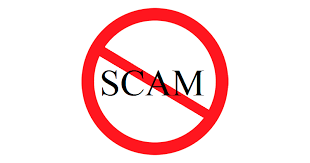Local News
Scam Spotlight: Fake Jury Duty Notices

Missing jury duty can come with real consequences. You could face a fine, be required to go to court, or even get arrested. Scammers take advantage of this to get your money or sensitive information.
A jury duty scam usually starts with a phone call or an email from someone claiming to be a court official or someone from a law enforcement agency. They say you missed jury duty, even though you never got a jury duty notice, and now there’s a warrant for your arrest. The only way to cancel the warrant is to pay a fine or “confirm your identity” by providing your personal information, like a Social Security number or date of birth. If you refuse, they may threaten you with jail. To make the scam seem real, scammers also might give you a fake badge number and case number.
How can you tell it’s a scam?
· Courts never ask for immediate payment over the phone. No government agency will.
· Only scammers insist that you can only pay with gift cards, a payment app, cryptocurrency, or a wire transfer service like Western Union or MoneyGram. They use these methods because it’s very hard to get your money back if you pay in these ways.
· Courts never ask for sensitive personal information over the phone, like your Social Security number or date of birth. Only scammers do.
If you think a call or email could be real, call the court directly at a number you can verify is correct – never use the contact information the suspicious message provides. Keep in mind, a real jury summons is sent by mail before you are required to appear for jury selection. If you miss jury duty, you will be contacted by the court. You won’t immediately go to jail or need to pay a fine! Specific details, such as how you will be contacted or what will be required of you next, may vary by county and by type of court (for example, municipal court vs. federal court). It is important to contact a court directly to verify whether a missed jury duty notice is real – don’t immediately trust it, but don’t ignore it either.
Scammers are sophisticated! They use tried-and-true methods to trick you into handing over your money and personal information. Don’t let them scare you into getting scammed. If you get a call or email like this, hang up or don’t respond. Don’t pay or give them any personal information.


